

It's 4 o'clock on a September morning, and 57-year-old Zhang Wen and his fellow fishermen have set sail for their daily catch on the lake. Thirty-six years of experience have given Zhang Wen, the leader of this fishing team, a sharp instinct about where he should cast his net. But it's only when the giant three thousand meter-long net is fully open that Zhang has time to rest in his small vessel, and wait to see the other fishermen hauling the net back to the trawler.
"Our yield has been very good this year, bringing in good money and hope to our lives here. Look at the reeds near the bank over there; you can see the environment is getting better. And because that's getting better, there will be more fish."
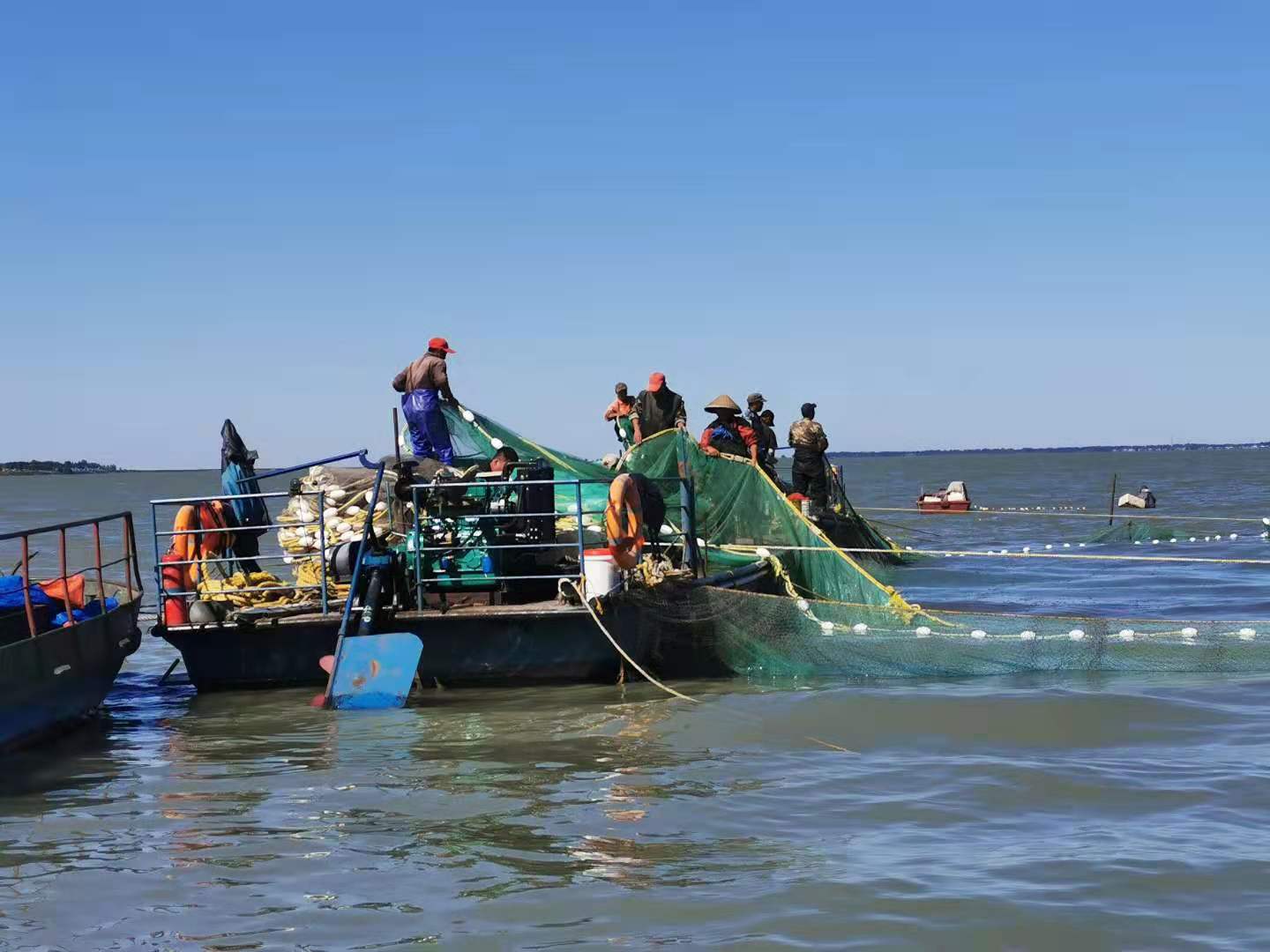
Fishermen are pulling the giant net back to their trawler in the Chagan Lake. [Photo: China Plus/ Xiaoyu Wang]
Zhang Wen has another identity: he's also an Internet celebrity. Every December, when the temperature drops below 20 degrees Celsius, anglers drill holes in the ice, and cast their nets through the holes. They use horses and human hands instead of machines to pull the nets out from under the ice. When they are pulled out, millions of fish can be seen jumping in the net. Winter fishing has become an important part of local tourism. As the leader of the fishing team, Zhang Wen is responsible for finding where the schools of fish are under the ice. The boom in tourist numbers in winter, and their photos of him pulling giant fish out from under the ice, has made him something of an Internet celebrity in China. His small restaurant served up fresh fish to tens of thousands of tourists in last winter, bringing him 100 thousand yuan, or roughly 14-thousand U.S. dollars, in extra income. When he was young, he never expected to see anything like this kind of fame and success in life.
"There were no big fish when I was young; my father used to work in the Chagan Lake Fishing Ground. All my father and his colleagues could do was to catch small local fish. He only earned one yuan a day to raise our family, and relied on God to send enough rainwater, keeping water in the lake, which could dry up in bad years, causing salt storms. In the windy times in spring, the white powder was everywhere; people couldn't open their eyes or see anything."
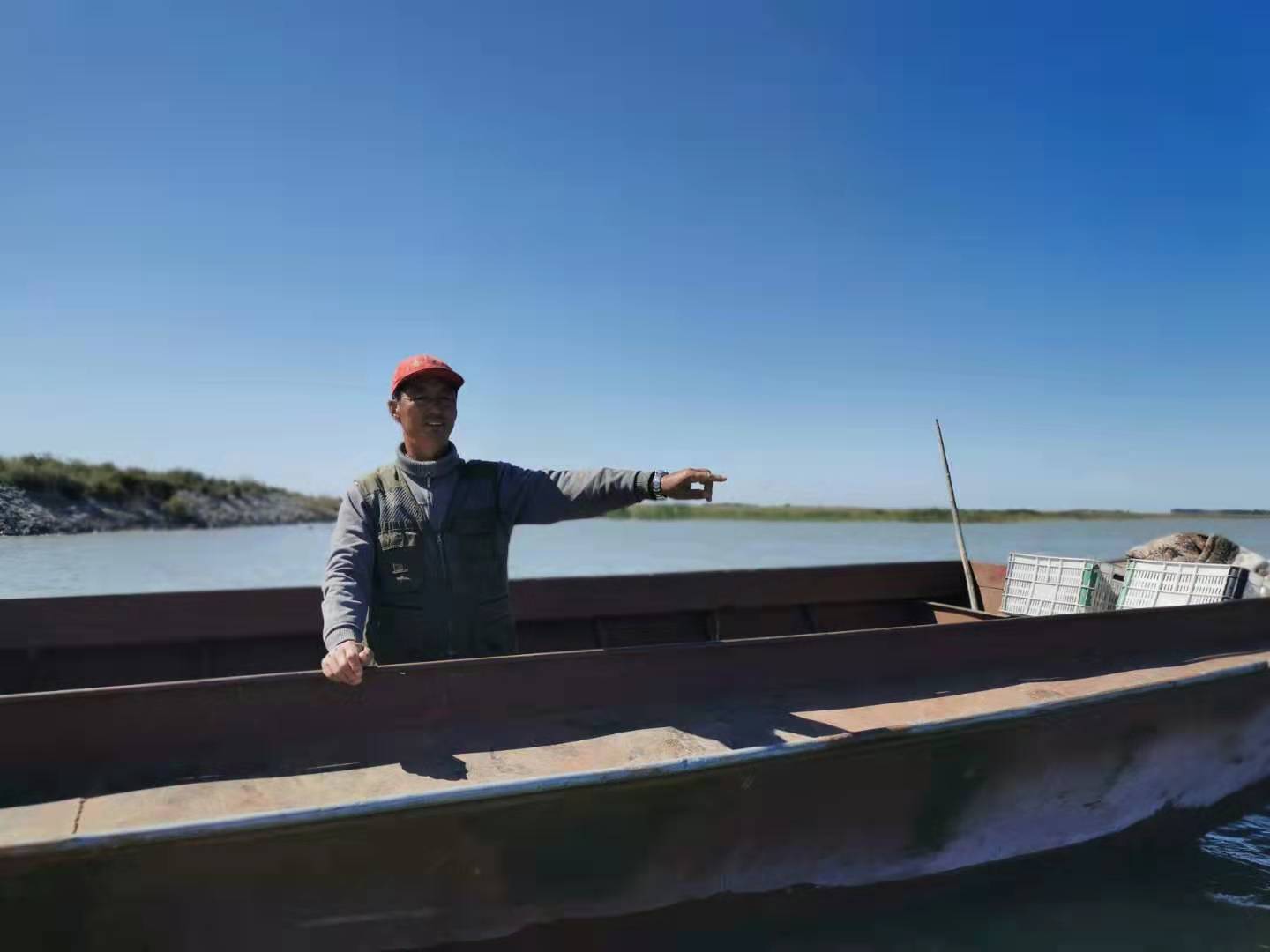
Zhang Wen, the leader of the fishing team stands in his boat and points to the net. [Photo: China Plus/ Xiaoyu Wang]
The history of fishing in Chagan Lake, which gets its name from the Mongolian word for "sacred", can be traced back 800 years, to the Jing Dynasty
The emperors of the Jing chose the lake as the site of the royal residence in spring, and held fishing ceremonies when the lake melted. For a long time, the lake and its abundant stock of fish was shared by the Mongolian and Manchu people.
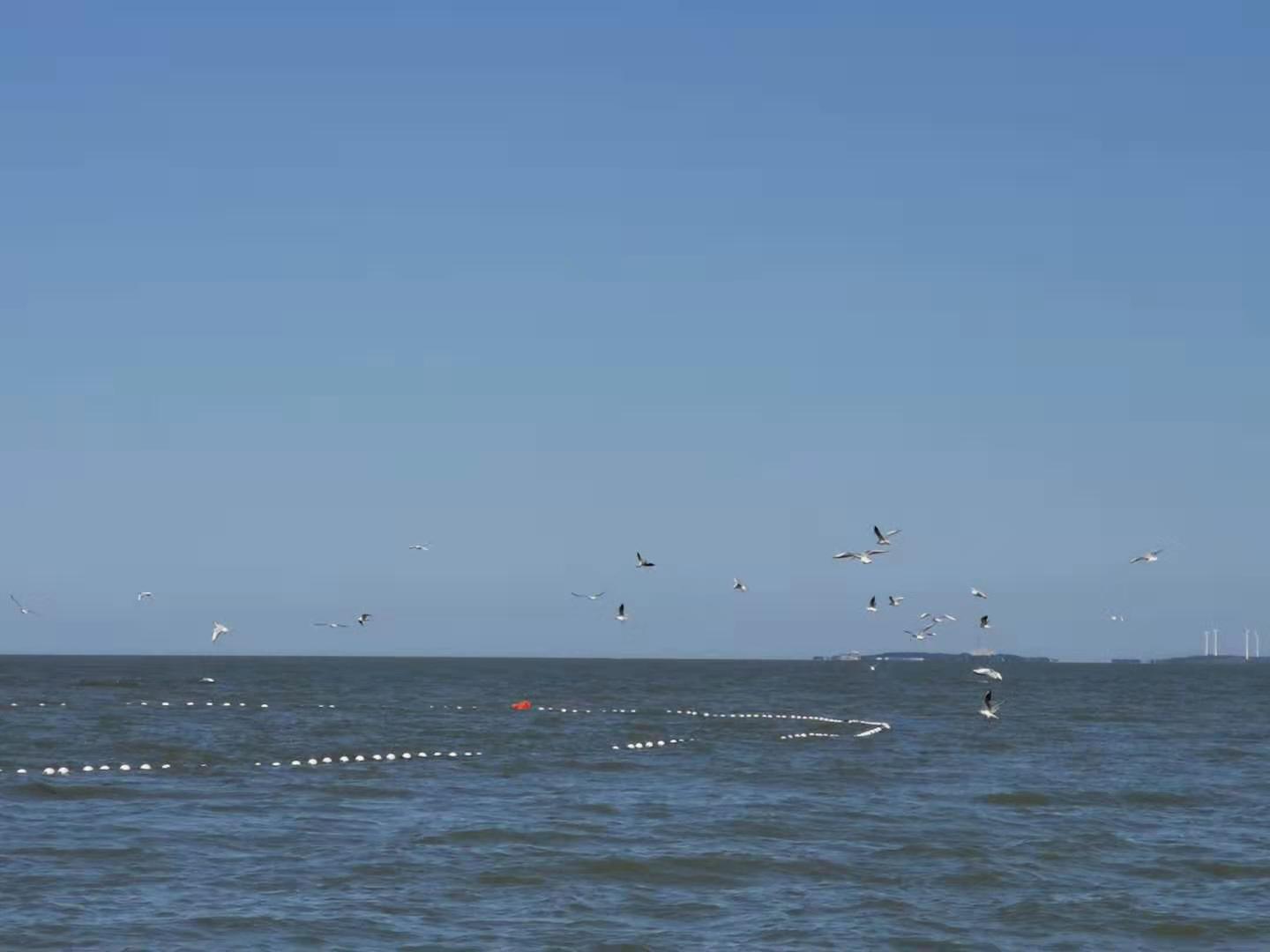
Birds are hovering over the fishing net, trying to share some fish from the yield. [Photo: China Plus/ Xiaoyu Wang]
Walking slowly along the lakeside road, the endless water and reed marshes come into view. It's hard to believe this bracing place was once the barren, salty land that Zhang Wen described.
Huang Jingxing, an old employee of the fishing ground, is roughly the same age as Zhang Wen. He says the lack of water was the main reason for the salinity.
"The most memorable scene from my childhood is the shrinking of the surface of the water. The banks of the original lake were 10 miles away from where they are today: the lake was only a few miles wide. You can imagine how small the water area was. Because of the reduction of the water, the P.H. value in the lake rose to more than 10: no fish could survive in it. No fish, no money. The workers had to go and get part-time jobs to pay for bread. And the local farmers' land had no yield in those years either: no crops could grow in the saline land."
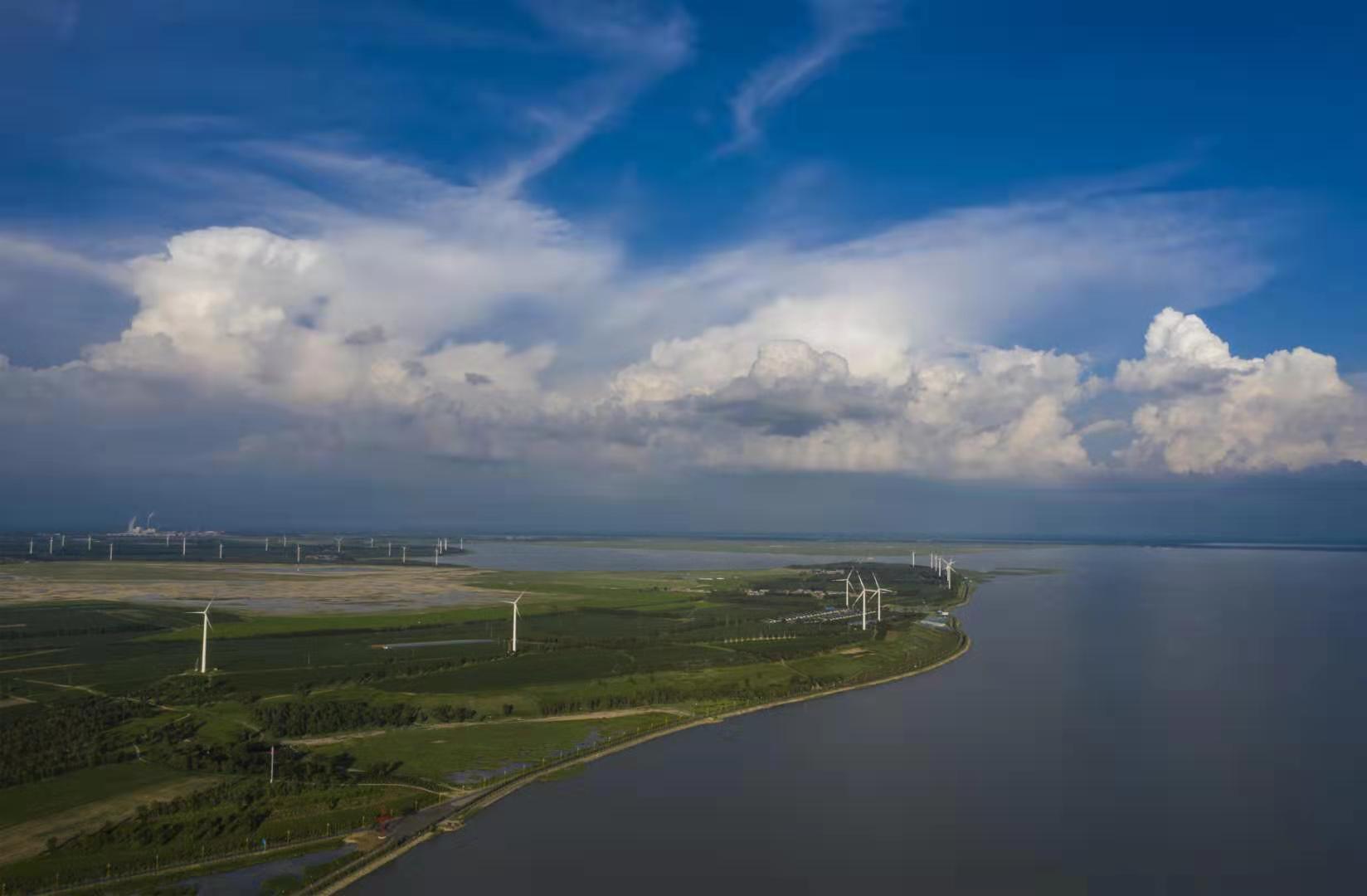
Chagan Lake owns a vast of water area; the nearby green lands are now parts of the tourism attraction. [Photo: courtesy of Publicity Department of Qian Gorlos Mongolian Autonomous County]
In the 1970s, Chagan Lake was becoming increasingly saline because of the reduction in its water supply. The lake was topped up by the adjacent Hulin River. But then in the 1970s some water facilities were built upstream, leaving rainwater as the only source of water to top up the lake. With its location in a semi-arid area, there was more evaporation than there was rainfall, and the water level dropped day-by-day, causing the lake to become more and more alkaline.
The rapid degradation of the local ecosystem had a major impact on the local economy, and in 1976, the local government realized it had to take action. It encouraged local residents to take part in a canal project linking Chagan Lake with the Songhua River, another giant river in Jilin Province. It was a massive project at the time, because the 53 kilometer-long canal had to be dug by hand; there was no machinery available.

The monument of the canal project in Qian Gorlos Mongolian Autonomous County is now a tourism attraction. [Photo: courtesy of Publicity Department of Qian Gorlos Mongolian Autonomous County]
Wang Fenglin is the vice present of the Chagan Lake Tourism and Economic Development Zone Administration. Some of his family took part in the construction of the canal. He says it was very difficult to do anything like it back in the 1970s.
"Mechanical equipment was rare in China in the 1970s. The construction of the canal was all done by hand. Eighty thousand people were involved. Many local residents didn't understand what the point of building the canal was. Now they understand what the project meant, when they see that everyone can benefit from the water that the canal brings to us."
The water from the Songhua River fed the lake, and it began to recover. The lake area increased from 50 square kilometers to around 500 square kilometers, including the nearby wetland. It is now the seventh largest freshwater lake in China, with a surface area of 420 square kilometers. And along with the river water came lots of fish. It looked like a happy ending – but it wasn't to be, just yet.
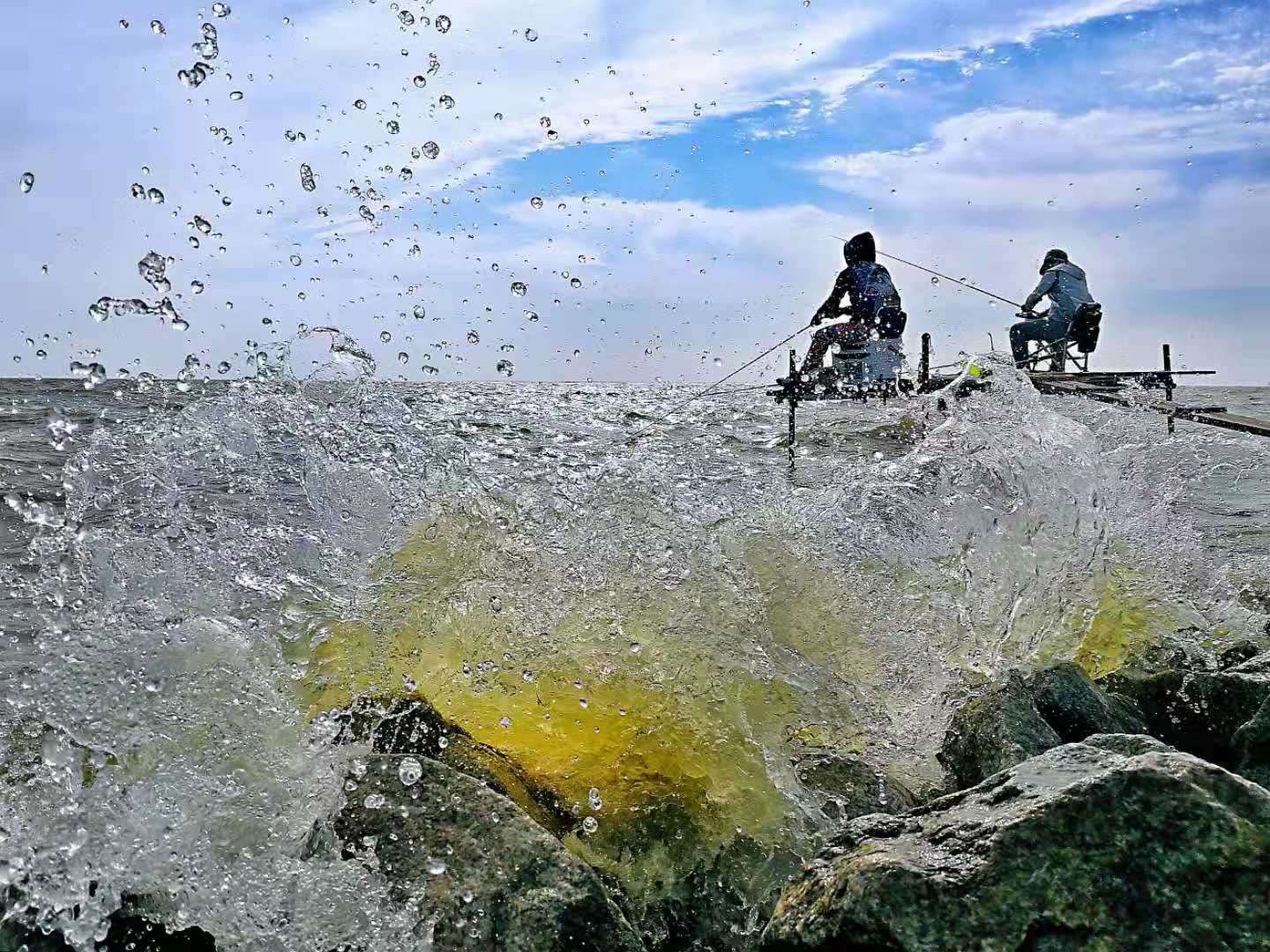
Tourists are fishing in the Chagan Lake. [Photo: courtesy of Publicity Department of Qian Gorlos Mongolian Autonomous County]
Chagan Lake is bordered by three counties, and at that time there was no coordinated management of the fishery resources. The fish weren't just being caught by the fishermen – everyone who lived by the lake was able to come and fish for themselves. With no one overseeing the management of the lake, nets with the smallest mesh were used and soon, fish stocks were close to exhaustion.
The huge profits stimulated the over-fishing, which resulted in a lake full of water but empty of fish.
In 1992, the Chagan Lake Fishing Ground management decided that drastic action was required: they imposed a three-year ban on fishing at the lake. It was a hard decision, because a three-year ban meant no income for the fishermen. They then started breed fish fry in the lake.
Huang still remembers when the first net came out of the water in the winter of 1994, three years after the fishing ban had been imposed.
"I hadn't seen so many big fish in my entire life! A wild fish weighing 10 pounds before was big enough for us. But that winter, there were big head carp weighing more than 10 pounds everywhere!"
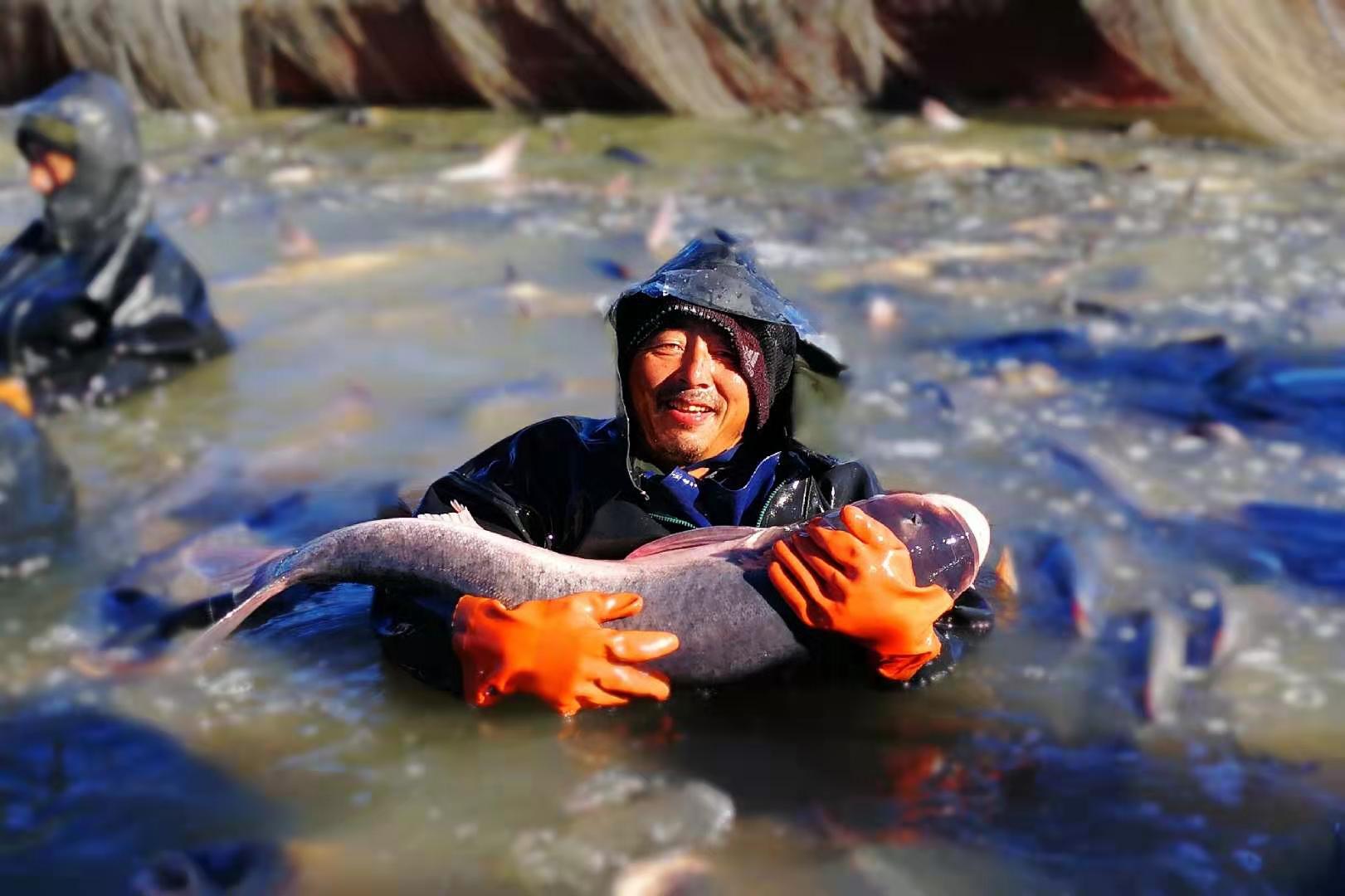
Local fisherman holds the giant carp yield from the lake. [Photo: courtesy of Publicity Department of Qian Gorlos Mongolian Autonomous County]
The local fishing industry was saved by breeding fish fry. Facing the risk that the lake could dry up, and the over-fishing problem, taught the managers of Chagan Lake two bitter lessons, which led them to reconsider the relationship between humans and the environment. But now that the sweetness of sustainable development had been tasted, the fishing ground has begun to regulate daily quotas and strict requirements are enforced.
Restrictions were also put on the size and specifications of the nets fishermen use.
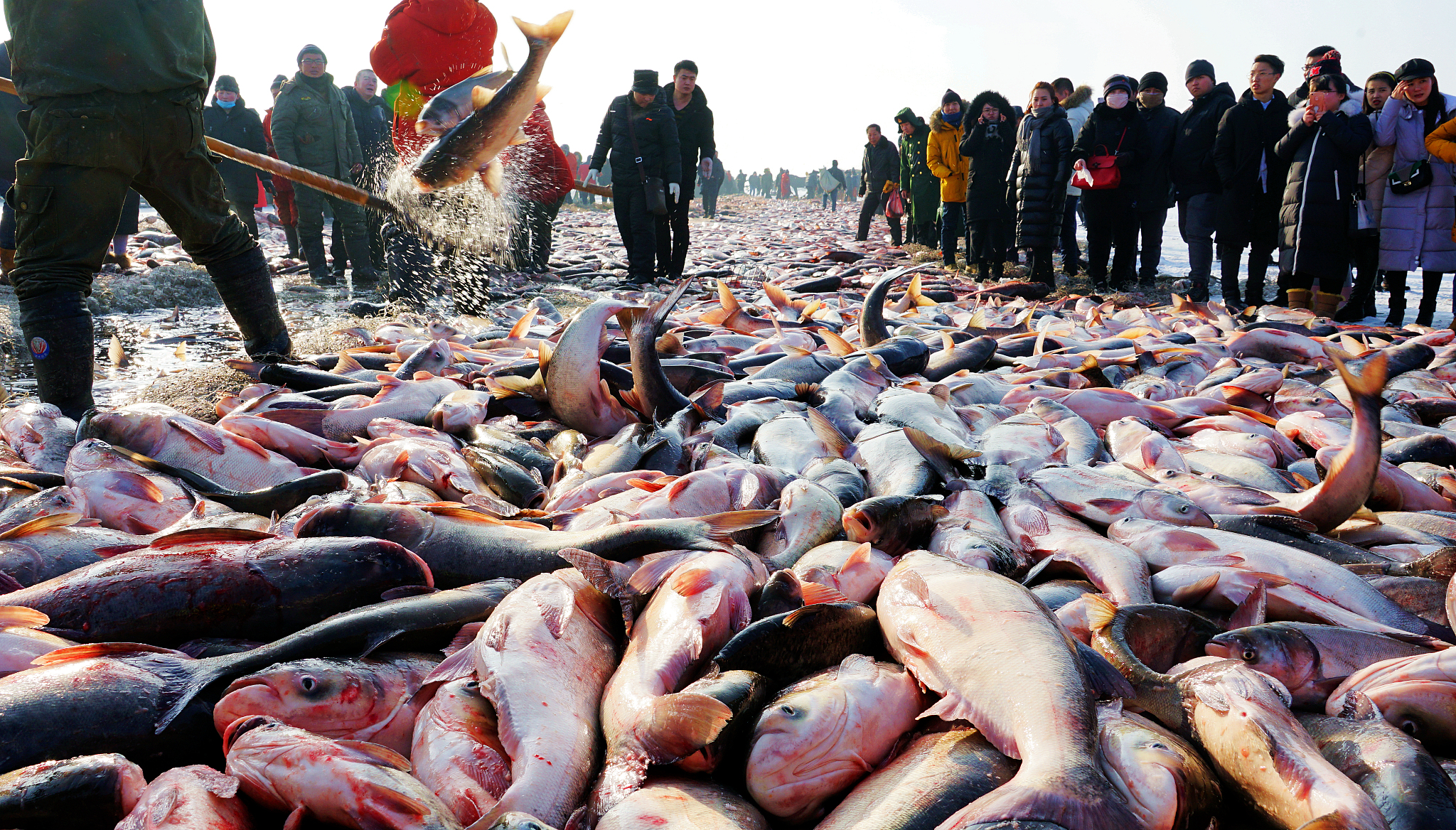
The harvest of fishing in winter attracts tourists to visit Chagan Lake. [Photo: VCG]
Wang Fenglin, the vice president of the lake administration, says they have learned from history the importance of protecting the environment.
"We have paid a lot of attention to ecological protection. Industrial projects are not approved in our development zone. Any projects with potential pollution are also not approved. This is our standard for developing the economy."
He explains that protecting the lake is not only about protecting the water area: the wetlands near the lake are also a core part of their job.
Up to 2019, more than 1,500 hectares of farmland on the shores of Chagan Lake were converted into wetland or forest. The growing wetlands have attracted more birds to the area to live and breed. The Lake has transformed from a saline land into a fertile lake, and a scenic attraction. During the recent National Day Holiday, 311 thousand tourists came to the Lake. More and more people are realizing that the beauty of the lake is not just limited to the winter. And tourism means extra income for the locals.
Zhang Wen was able to extend his small restaurant last year to welcome more tourists. He'll retire in 3 years' time, which doesn't worry him.
"Our fisherman could earn 100 thousand yuan a year; some will be paid more, as much as 150 thousand yuan a year. Plus, with the extra income from my restaurant, I can earn 300 thousand a year. I owe all this to the good environment."
